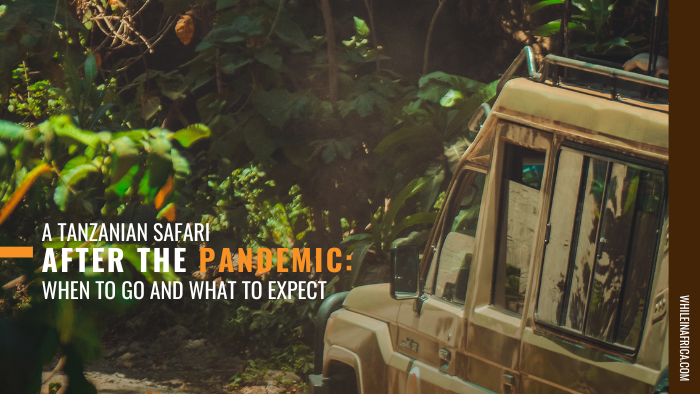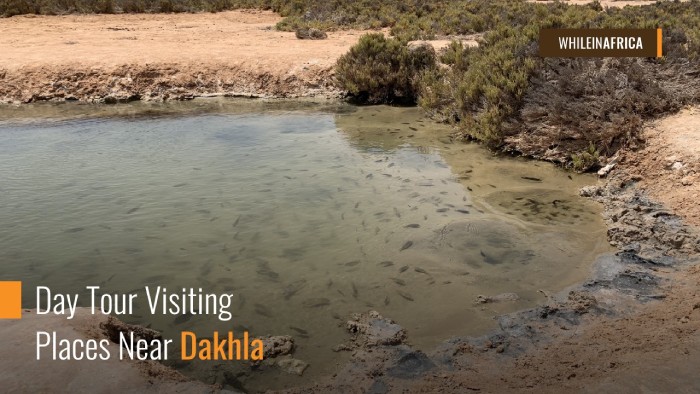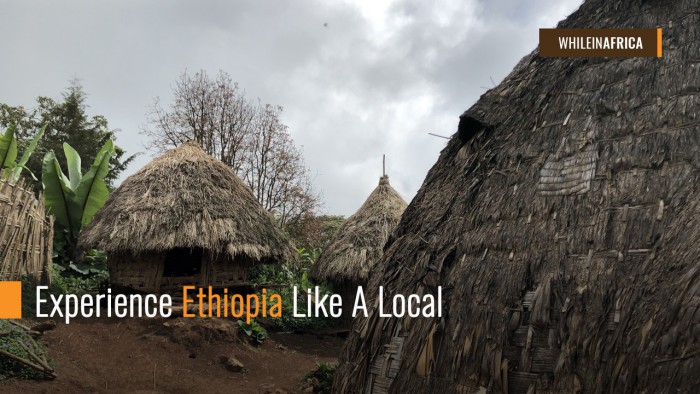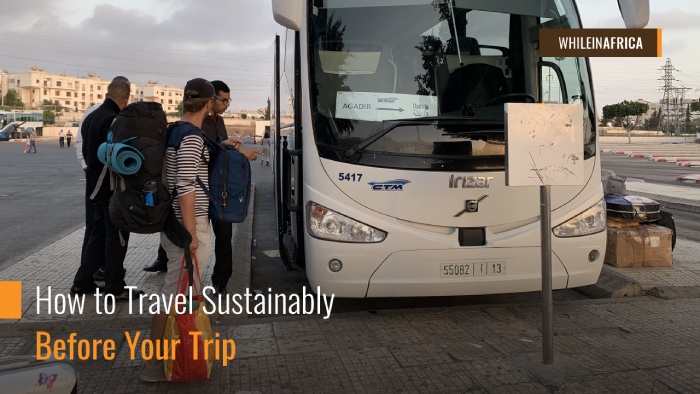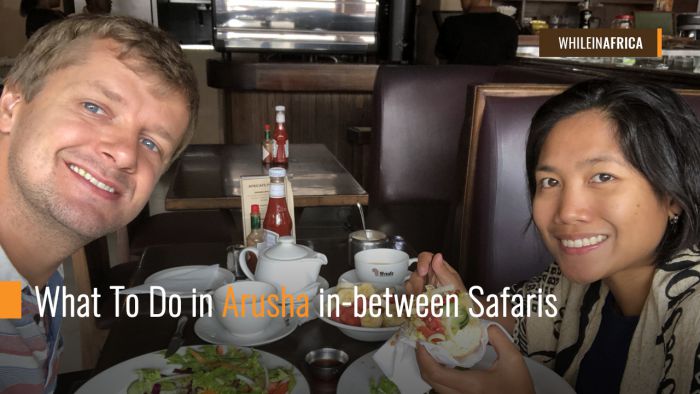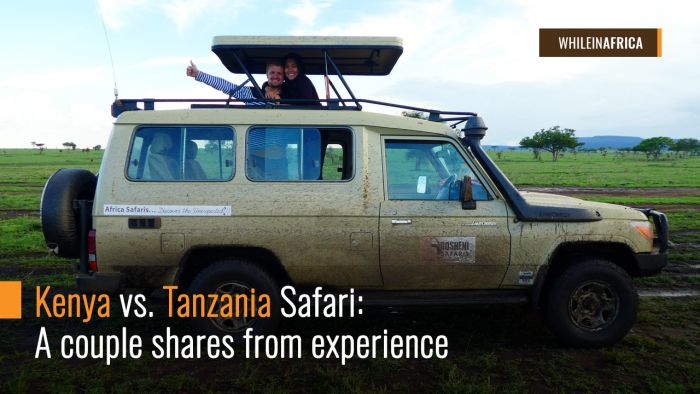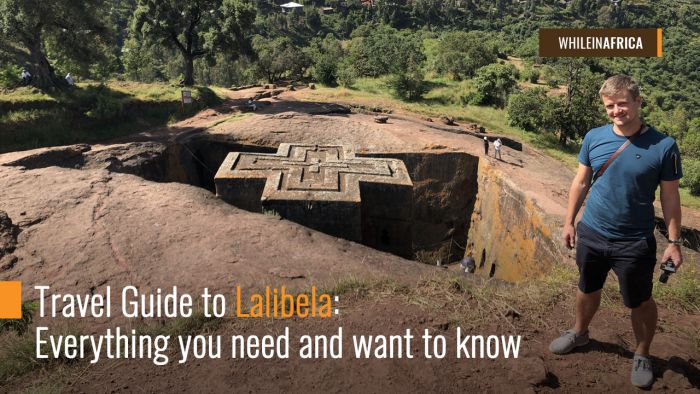In March 2020, the rampant spread of the deadly Covid-19 virus led to governments around the world implementing unprecedented measures to stop the virus from spreading. One by one, national authorities announced measures never previously considered, that would have a devastating impact on the economic and social landscape worldwide. Overnight, international travel was banned and borders closed as humanity hunkered down fearing the worst.
Perhaps desperate for something positive, stories emerged of how, in the absence of mass human activity, Nature seemingly leapt at the opportunity to show itself in places it had long since abandoned. A meme was born – Nature is healing. In its way, it gave society hope that just as Nature could heal, so too could our communities in the future, as they were battered by the ramifications of the global lockdown.

Impact in Global Tourism
Arguably, no other industry was as drastically affected as global tourism. Airlines and the hospitality industry were among the top 5 sectors most severely impacted, according to S&P Global Market Intelligence. The World Travel & Tourism Council stated that before the pandemic tourism accounted for a quarter of all new jobs being created and over 10% of existing jobs and the global GDP. With this, substantial foreign currency earnings helped developing countries, such as Tanzania, improve their economies and address challenges such as unemployment, skills shortages, and poverty alleviation.
With the lockdown imposed, travel-related businesses were shuttered overnight amid a desperate plea from stakeholders that would-be tourists postpone rather than cancel their bookings. While there appeared an initial willingness to support the industry, as the situation worsened, cancellations grew, leaving tourism businesses with no choice but to downsize their staff.
Until that point, tourism-related employment in Tanzania accounted for up to 850 000 jobs (about 4.5% of the workforce), while the industry contributed around 17% to the national GDP. As the ramifications of the closures grew, Tanzania’s tourism revenue would contract by 80%, with about 75% of employees being laid off.
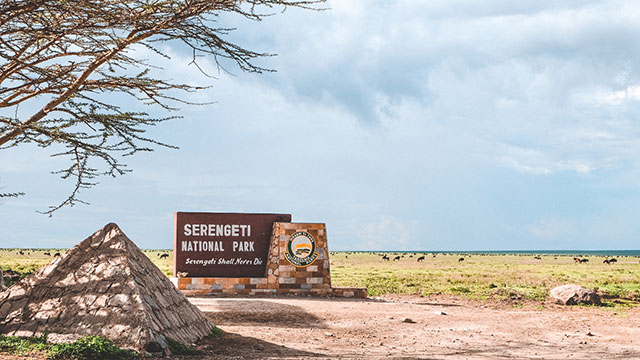
Tanzania Reopens
Anxious to mitigate the effects of the pandemic, the Tanzanian government re-opened the borders after less than three months. However, international travellers have been slow to return as numerous governments warned against travel and imposed penalties on those who did.
It should be noted that the government was heavily criticised for its handling of the crisis, and there is still a paucity of accurate information related to the virus. Various studies and workshops have been held and recommendations made to the government but the extent to which these have been adhered to is sketchy. To date, only 5-10% of the population are vaccinated.
Nevertheless, Tanzania is open for business and there is evidence of a gradual recovery. In 2019, some 1.5 million tourists arrived, with that number dropping to just over 620 000 in 2020. In the first quarter of 2022, arrivals totalled around 367 000, up from 275 000 last year.
At the same time, employment figures in the sector are growing steadily as demand for services grows. While it may take some time before the country experiences the volumes it did in the pre-pandemic era, the signs are encouraging as the world reopens for leisure travel.
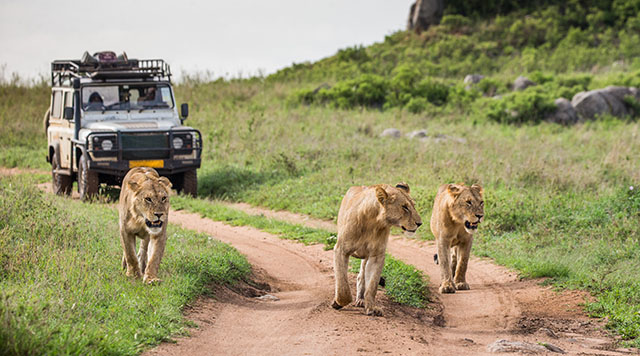
It seems an opportune moment therefore to visit Tanzania on a safari. In a sense, perhaps it is time for humans, having been effectively deprived of all the benefits of travel for so long, to experience some of the universally recognized healing properties of time in nature. The advantage of visiting Tanzania sooner rather than later is that, historically, its main attractions can get overcrowded with tourists, particularly during the peak season.
Tanzania has a robust network of national parks scattered across the country, protecting its diverse natural heritage from human encroachment and unsustainable exploitation. Since the early part of the last century, its wildlife has attracted travellers from across the globe, creating a vibrant safari industry that caters to a variety of markets.
Traveling to Tanzania
In terms of getting to Tanzania, most airlines that serviced the route previously have returned, although they may be operating at a lesser frequency of flights. Your tour operator will be able to provide you with up-to-date information in this regard.
If you’re travelling to Tanzania and have a vaccine certificate, aside from completing an online health surveillance form 24 hours before arrival, there are no health restrictions that apply. Once the surveillance form has been submitted, you will be sent a unique health code which must be presented on arrival.
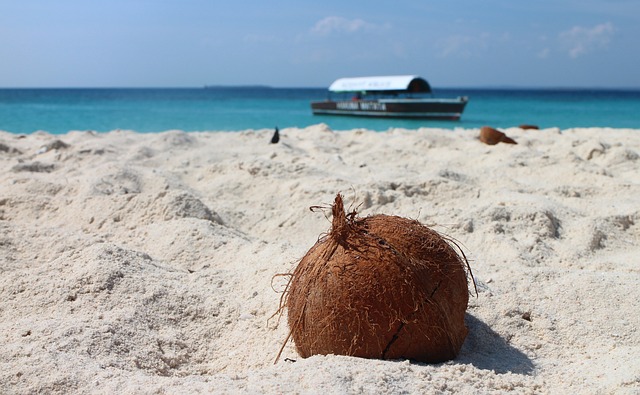
If you have not been vaccinated, you must have a negative COVID-19 (RT-PCR) test result taken at least 72 hours before your arrival, complete the Ministry of Health’s online surveillance form in the 24 hours before arrival (see above) and take a rapid test on arrival (which can be booked online before arrival). If your test is positive, you are required to self-isolate until further guidance is communicated. It is strongly advised that you consult your travel agent, airline, and travel clinic regarding the current requirements ahead of travel.
Once you are in the country, there are no restrictions related to Covid-19, but you are advised to use your discretion, particularly on public transport and when in crowded indoor spaces and follow established hygiene protocols.
Budgeting for a safari in Tanzania can be a difficult exercise as there are many variables. Ideally, you want to use a reputable and established safari operator that can prove their credentials and has a decent online presence, such as tripadvisor.com. With there being very little in the way of regulation or enforcement in the sector, there are unfortunately a lot of scam operators. So, do your homework well before you set off.
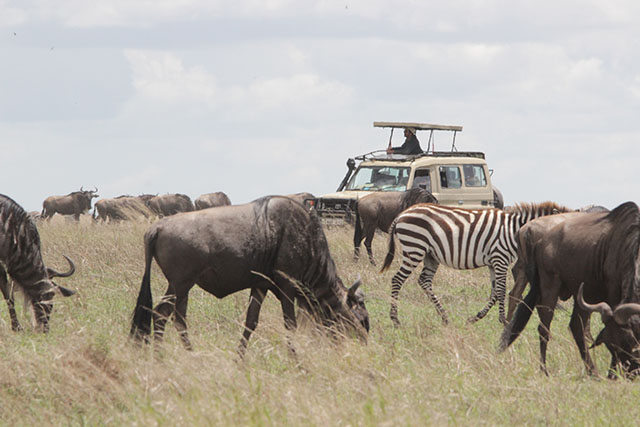
Choosing a reliable tour operator
One of the key advantages of using the services of a reputable operator is that they generally offer all-inclusive packages. This comes in handy when you consider the multiple “hidden fees”, and variations thereof, that are levied. These can be very confusing and the costs can stack up quickly.
Consider the following;
- You will have to pay a park entrance fee, known as a TANAPA, per entry per day.
- Concession fees may apply per person per day – and these are roughly equivalent to the entrance fee.
- A camping fee, applicable even if you are in a premier lodge.
- Some properties charge a destination fee. Some Serengeti lodges charge a fee of US$250 per day.
- 18% VAT and a tourism levy equivalent to 1% of the total price of your overnight accommodation.
- If you stay outside a park, within a Wildlife Management Area, you will need to pay an additional US$30 per adult and $25 per child per day.
Adding to the complications, certain fees may have multiple names and interpretations, such as the Wildlife Management fee and the camping fee. Some say it is the same thing, while others say they are different and charge for both.
The Ngorongoro Crater falls within the Ngorongoro Conservation Area Authority (NCAA). If you need to pass through the area to get to the Serengeti, regardless of whether you go to the crater or not, you have to pay the park entrance fee. Compounding matters, it is a time-consuming process of queues and paperwork.
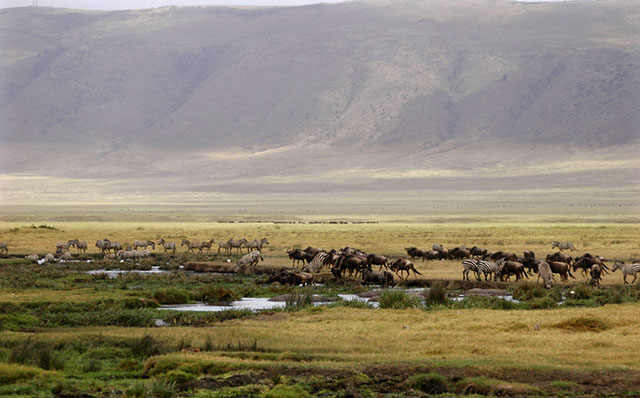
Likewise, since the border crossing between the Masai Mara and Serengeti is closed and thought unlikely to reopen, tourists have no choice but to traverse the NCAA if they wish to visit Kenya. This necessitates a lengthy detour and further adds to costs.
Price
Lastly, most of Tanzania’s parks do not issue multiple entry day passes. This means that if for instance, you want to leave the park for lunch and return in the late afternoon, you will need to pay again.
As mentioned, the daily price of a safari varies greatly depending on your requirements, ranging from US$125 up to and exceeding $1500 per person per night. As a rough guide, the basic safari option would be around $150 per night. Mid-range would be from $350, and luxury from $1500. Bear in mind that some options include road or air transfers, but not all.
When To Go
The final consideration is when to go. Perhaps the highlight of the Tanzanian safari calendar is the circular mass migration of wildebeest and other ungulates which revolves between the Serengeti and Kenya’s Masai Mara. The key driver of this movement is rainfall and resultant forage availability. As such, it is an imprecise science, which can be delayed or advanced from one year to the next.
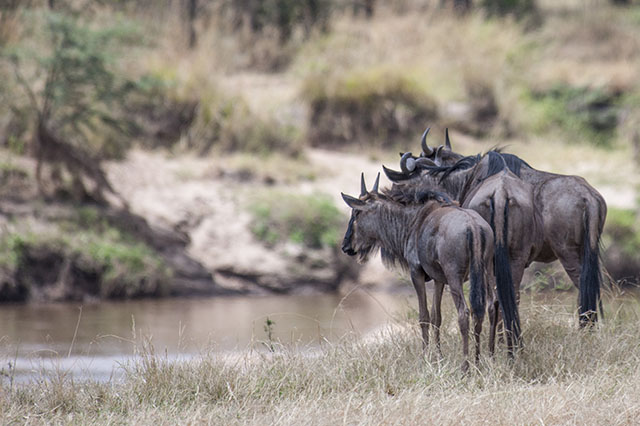
June to September is the high season as the weather is relatively mild and dry, which means game viewing is best. The peak of the migration is in June-July, including the famous river crossings. Tourist numbers are high, as are the prices.
From October to February, the wildebeest give birth and “settle” on the southern plains of the Serengeti. The weather is hot, with the so-called short rains falling, accompanied by windy conditions. Tourist numbers are slightly less, but prices increase from mid-December to mid-January.
March to May are considered the low season, and as such, discounted prices are often available. At the same time, some lodges close altogether. This is when the “long rains” fall, which makes some areas inaccessible, but the landscape is lush and the birdlife at its prolific best.
All in all, a safari in Tanzania is well worth any effort and expense incurred. The sheer diversity of wildlife, coupled with innate Tanzanian hospitality, and a well-polished professional sector, mean that for most, it is an adventure of a lifetime.
SOURCES
Economic impacts of COVID-19 on the tourism sector in Tanzania
When is the best time to go to Tanzania?
Tanzania Safari – Additional Expenses
Sea Davidson, Facebook, 18 April 2022, SAFARI TIP #6
Africa’s year of zero: a special report on the future of wildlife tourism
Travel in time of uncertaiunty
Effect of Pandemic on Global Tourism

